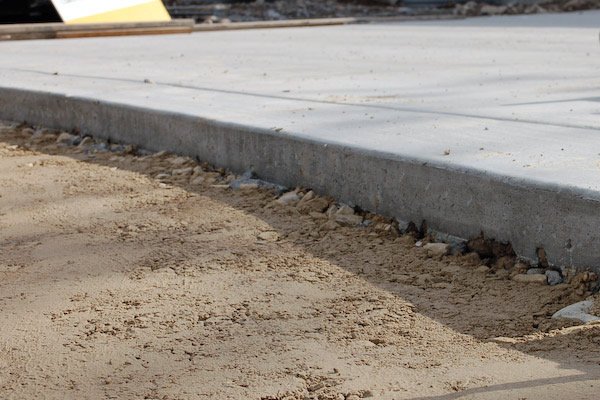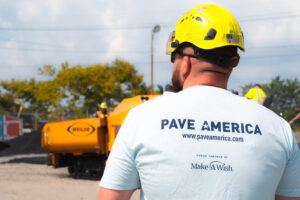Concrete can be an excellent choice for paving driveways, parking lots, walkways and other areas. When many customers begin considering having concrete installed, they often ask about the best thickness for the slab. Although many municipalities have established codes that require a specific minimum thickness, in some cases, the actual number may be higher than the one required by the code. Therefore, a concrete contractor must consider a variety of factors before deciding on how thick to make the slab.
How Thick Should a Concrete Slab Be: Key Factors to Consider
The first factor that must be considered is the purpose of the slab. Is it a residential driveway, a commercial parking lot, a street in an industrial district, a parking area at a truck stop, a cul-de-sac in a residential neighborhood or a walkway that winds through a park?
The purpose of the slab provides information related to the next factor, which is the weight and volume of the traffic that is expected to use the pavement. For example, a pavement that must bear a large number of heavily laden trucks must be stronger than a typical home driveway, and a walkway that bears only occasional pedestrian traffic may need to be stronger than one that bears a high volume of golf carts.
The contractor will also need to consider a variety of other factors, including the drainage and the quality of the underlying soil. If a previous pavement on the site failed, the contractor will want to determine the cause.

General Guidelines for Determining Concrete Slab Thickness
After the contractor considers all factors, he or she will calculate the standard concrete slab thickness. A slab that is too thick is a waste of the customer’s money, but one that is too thin will lead to premature collapse. Since every job is different, the following guidelines may vary from what your contractor recommends after your site is properly evaluated.
• Sidewalks: Concrete sidewalks have a typical concrete slab thickness of 4 inches. However, if a sidewalk supports motorized service vehicles or crosses a driveway, it may need to be as much as 8 inches in thickness.
• Driveways: Home driveways can be as little as 4 inches thick if they are only going to bear passenger vehicles. If they will be subject to occasional use by garbage trucks, RVs or other heavy vehicles, the recommended thickness may be 6 inches or more.
• Parking Lots: Most parking lots require a minimum thickness for concrete of 6 inches. If heavyweight trucks will also be allowed, the thickness must be increased. The areas around dumpster pads and loading docks may need to be up to 12 inches thick.
• Commercial Driveways: The minimum depth for commercial driveways is 6 inches or 8 inches, depending on the municipal code covering the site. Commercial driveway aprons need to be at least 8 inches thick, and in many cases, the aprons will need to be as much as 10 inches in thickness.
• Highways: The thickness of concrete on a highway depends on the volume of traffic. Current standards for interstate highways, for example, call for concrete that is between 11 inches and 12 inches in thickness.
Expert Concrete and Asphalt Services for Every Project
If you need concrete paving or concrete repairs, you can count on Alpha Paving for quality results at competitive prices. Whether you need a concrete sidewalk, concrete ADA ramp, concrete driveway, concrete road or parking lot built, we have the expertise to deliver your project on time and within budget. We also offer a full line of asphalt services, including asphalt paving, sealcoating, asphalt repairs and parking lot striping. Our company has a customer base that includes numerous retailers, municipalities, schools, property management firms, subdivisions, airports, hotels, apartment complexes, churches, health care facilities, office parks and industrial facilities. If you have more questions about Concrete: Slab Thickness or would like a free quote, fill out the online form or call (512) 677-9001.
We also serve the areas of : Buda, Kyle, Killeen, Cedar Park, Leander, Belton, Hutto, Lakeway, Lago Vista, Taylor !




